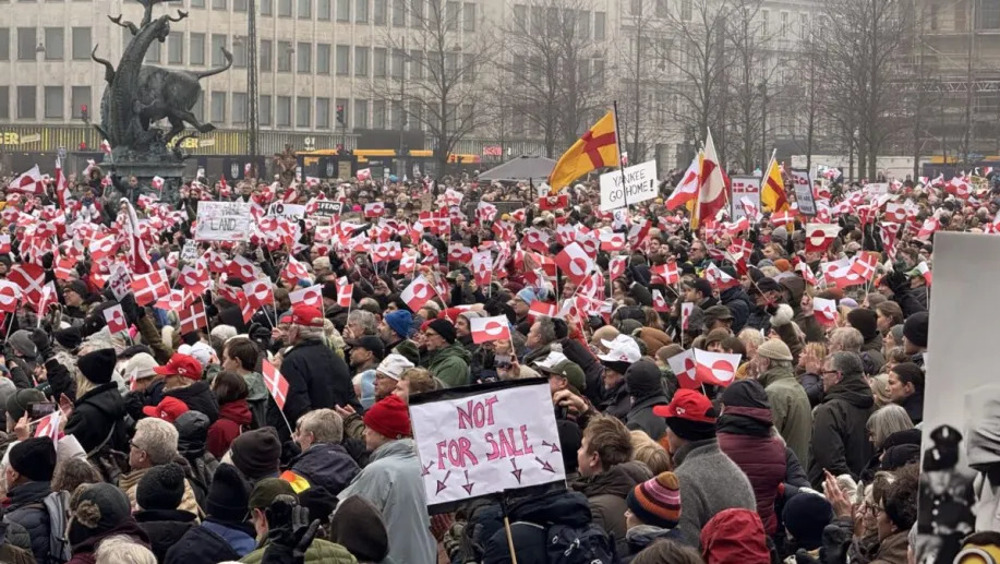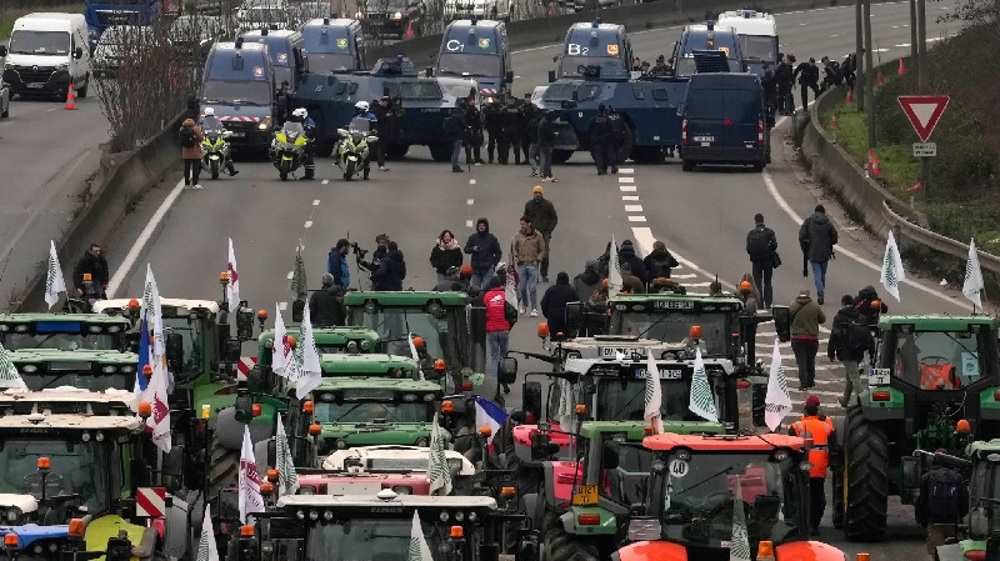Ceasefire in east Ukraine not holding: Poroshenko
The ceasefire deal between government forces and pro-Russia activists is not holding amid fresh clashes in the country’s volatile eastern regions, says Ukrainian President Petro Poroshenko.
“In total, the ceasefire has been broken 1,100 times," Poroshenko said in an interview with Germany's Bild newspaper on Sunday, adding, "The truth is that the agreement is not working."
Poroshenko also accused pro-Moscow forces of attacking government positions on a daily basis and thwarting the work of those tasked with monitoring the implementation of the truce.
The Ukrainian president, who is on a two-day visit to Germany, further described the ceasefire agreement as "a hope, not a reality” and called for more sanctions on Russia.
Moscow has been targeted by a series of sanctions imposed by the United States and the European Union over alleged support for pro-Russia forces fighting in eastern Ukraine. The Kremlin, however, denounces the accusation as "groundless”.
Poroshenko’s remarks coincided with the death of a pro-government militia member in the village of Pisky in Ukraine’s eastern region of Donetsk while a Ukrainian soldier was also wounded in clashes with the pro-Russians elsewhere in the country.
Earlier this month, the Ukrainian president said government troops and pro-Moscow forces withdrew most of their heavy weapons from the frontline in accordance with the ceasefire deal.

Ukraine’s warring sides reached a deal, dubbed Minsk II, at a summit attended by the leaders of Russia, France, and Germany in the Belarusian capital city of Minsk on February 11 and 12. The agreement introduced measures such as a ceasefire, which commenced on February 15, the pullout of heavy weapons, and constitutional reform in Ukraine by the end of the year.
The two mainly Russian-speaking regions of Donetsk and Lugansk have been hit by deadly clashes between pro-Russia forces and the Ukrainian army since Kiev launched military operations in April last year to crush pro-Russia protests there.
In May 2014, the situation in the two flashpoint regions started to worsen as residents overwhelmingly voted for independence from Ukraine in referendums.
More than 6,000 people have died in the conflict, the UN says. Around 1.5 million people have been also forced from their homes over the past months of the turmoil.
SSM/NT/AS
Israeli military chief warns Netanyahu, Katz of manpower crisis undermining military readiness
Iran Judiciary chief: Enemy turned to rumors after defeat in riots
Iran dismantles terrorist cell: Ringleader killed, 11 members arrested
Netanyahu joins familiar circle of war at heart of Trump’s Gaza plan
‘Eulogy for globalist hypocrisy’: Netizens react to Canada PM’s speech on end of ‘rules-based order’
US Treasury Secretary boasts about harming Iran economy, fueling unrest
Thousands protest Trump’s immigration policies on second term anniversary
Ex-NATO chief slams Trump’s Greenland threats, calls on EU to hit back










 This makes it easy to access the Press TV website
This makes it easy to access the Press TV website